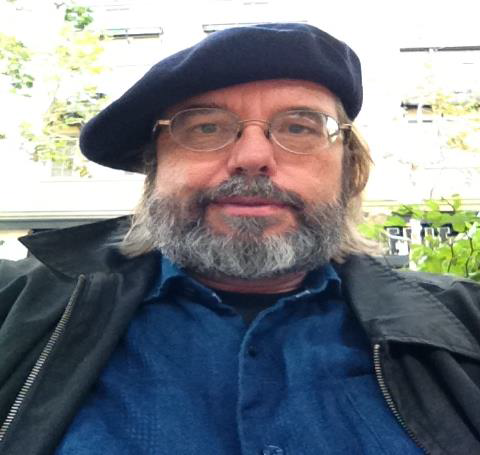時(shí)間:2015.11.10 下午2:30-4:30
地點(diǎn):視頻會(huì)議室
專家:Professor Mark Gonnerman(馬克·岡納曼教授)
主題:生命—死亡—重生:?jiǎn)滩妓乖谄谔垢4髮W(xué)畢業(yè)典禮上的演講
專家介紹:

馬克·岡納曼簡(jiǎn)介馬克·岡納曼教授碩士畢業(yè)于哈佛大學(xué),博士畢業(yè)于斯坦福大學(xué)���,現(xiàn)任美國(guó)索菲亞大學(xué)詹姆斯·威廉斯意識(shí)流研究中心主任����。岡納曼教授1997-1998年在斯坦福人文研究中心專注于垮掉派詩人加里·斯奈德的研究,為后來學(xué)術(shù)專著的出版積累素材�。2010-2011年他作為斯坦福研究中心研究員潛心于中國(guó)佛教文化研究。2014年出版專著《心理學(xué)和宗教的百科全書》�����,2015出版專著《整體感:解讀加里·斯奈德的<山河無盡>》����,在生態(tài)詩學(xué)界引起廣泛反響。
Gonnerman, Mark (Sofia University, USA)
E-mail: mark.gonnerman@gmail.com
More information: http://www.garysnydercenter.com
Prof. Gonnerman received his MA from Harvard University, and PhD from Stanford University, where he was a Lieberman Fellow. Prof. Gonnerman is now director of the William James Center for Consciousness Studies at Sofia University. He served as Research Fellow at Stanford Center for Buddhist Studies from 2010-2011. He has contributed to Gary Snyder studies in a variety of ways including a yearlong research workshop on Mountains and Rivers Without End at the Stanford Humanities Center in 1997–1998. Scholarly contributions to the workshop, an interview with Gary Snyder, and resources for further study have been published as A Sense of the Whole: Reading Gary Snyder’s Mountains and Rivers Without End (Berkeley: Counterpoint Press, 2015).
講座主題:生命—死亡—重生:?jiǎn)滩妓乖谄谔垢4髮W(xué)畢業(yè)典禮上的演講
內(nèi)容簡(jiǎn)介:2005年喬布斯在斯坦福大學(xué)的畢業(yè)典禮上的演講視頻��,在美國(guó)社交網(wǎng)站YouTube上獲得了23,000,000的點(diǎn)擊率�����。這位來自硅谷的偶像企業(yè)家���,在簡(jiǎn)短的演講中��,分享了適合各年齡層次人群的重要人生經(jīng)驗(yàn)�����。講座首先簡(jiǎn)介斯坦福大學(xué)的歷史背景�,然后深入分析和探討喬布斯演講辭中的生命—死亡—重生的主題。按照德國(guó)哲學(xué)家黑格爾的觀點(diǎn)���,他是否會(huì)把喬布斯稱為“寫入世界史的人物”�?如果是的話�����,這又意味著什么����?在講座的最后我們會(huì)一起回顧喬布斯關(guān)于耐心和毅力的闡述,為你的生活和工作找到激情�����。
Life-Death-Rebirth: Steve Jobs’ Commencement Address at Stanford University
Abstract
In 2005, Steve Jobs delivered a short address to the graduating class at Stanford University that has been viewed on YouTube more than 23 million times. This is an excellent speech by an iconic Silicon Valley entrepreneur that contains important life lessons for people of all ages. After the stage is set with a brief history of Stanford University, we will view the speech (with Chinese subtitles) and discuss the birth-death-rebirth theme at the heart of Jobs’ insights. We will also consider whether the German philosopher G. W. F. Hegel would recognize Jobs as what he calls a “world-historical individual.” If so, what does this mean? We will conclude by sharing our responses to Jobs’ thoughts about patience, perseverance, and finding your passion for life and work.

 官方微信
官方微信

 湖南教育政務(wù)網(wǎng)
湖南教育政務(wù)網(wǎng)


 官方微信
官方微信

 湖南教育政務(wù)網(wǎng)
湖南教育政務(wù)網(wǎng)
